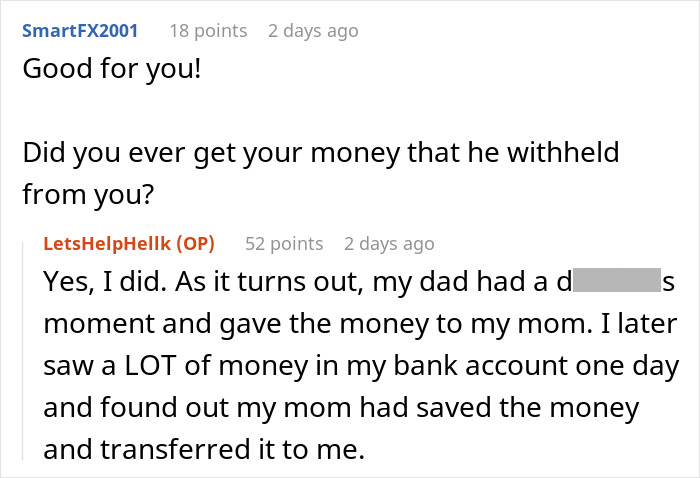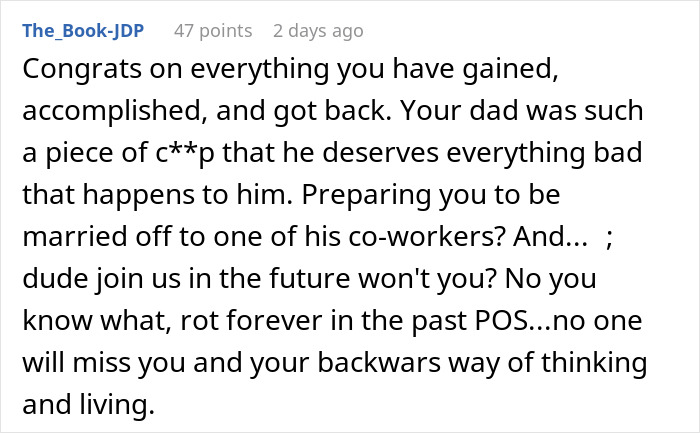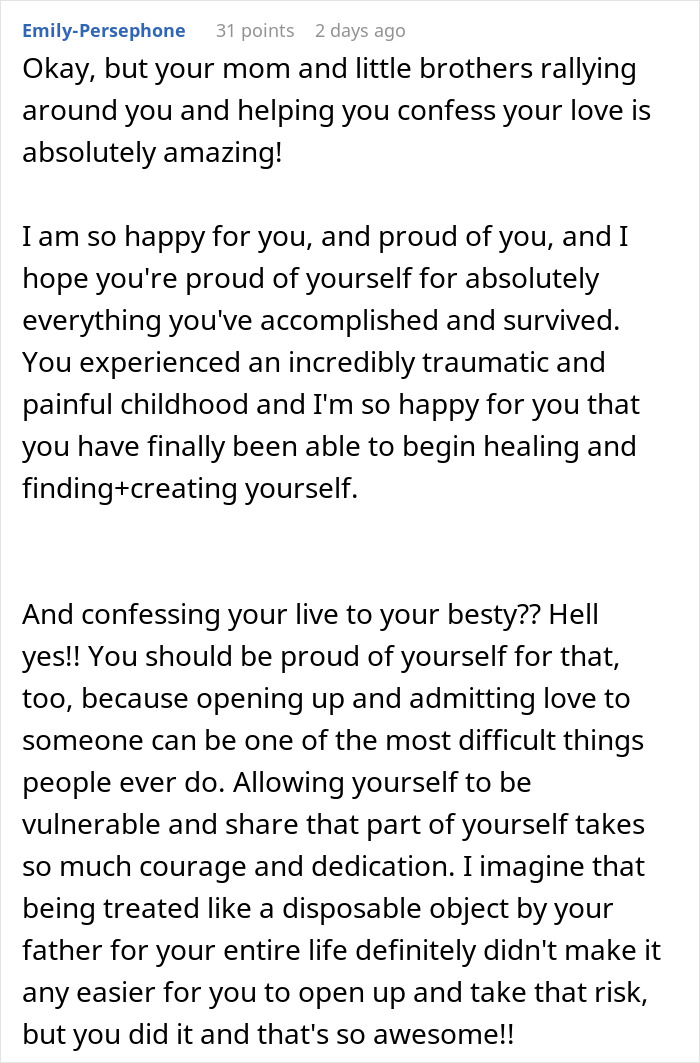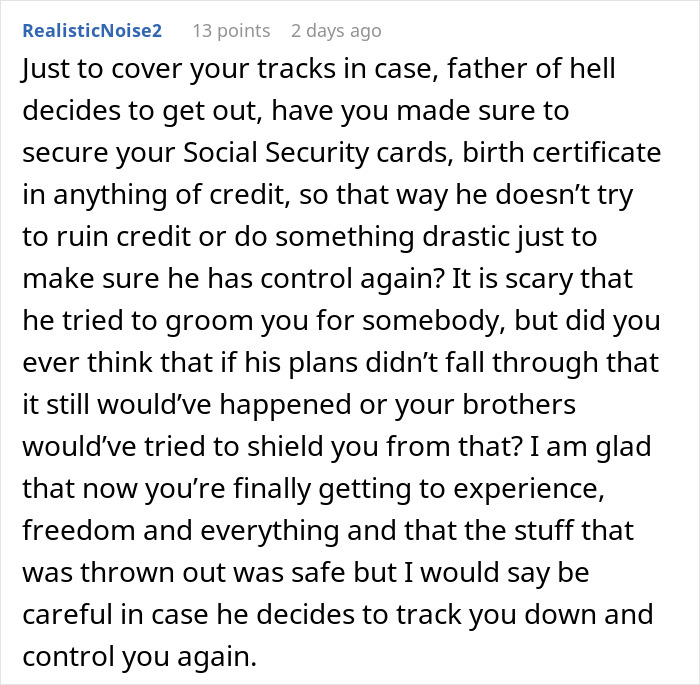Every one of us brings a ‘package’ from our childhood. It may be full of beautiful memories, love and values, but in many cases, unfortunately, this package is full of trauma, hurt and the desire to move out as soon as possible.
Sometimes, people just start to really ‘live’ when they turn 18 and move out from their parents. This Reddit user was in a similar situation – her dad wanted her to be a housewife, thus singled her out and forbade her from doing quite a lot of things that made the woman’s childhood a hellhole.
More info: Reddit
Receiving a different treatment than your siblings can be incredibly painful psychologically and make childhood feel like hell

Image credits: SHVETS production (not the actual photo)
This woman shares that she was the middle child and the only female between her siblings and was constantly singled out by her father
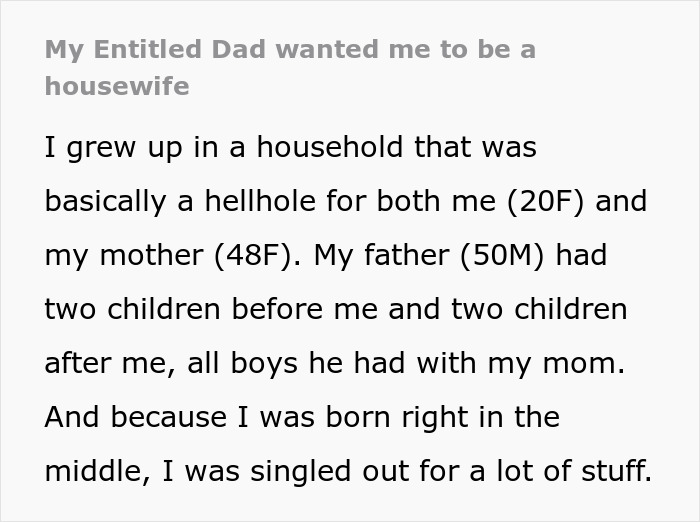
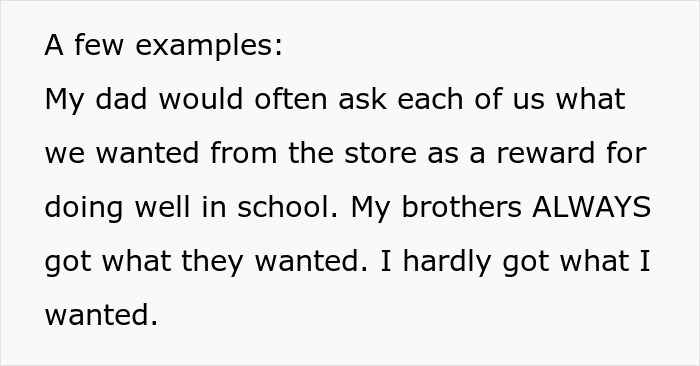


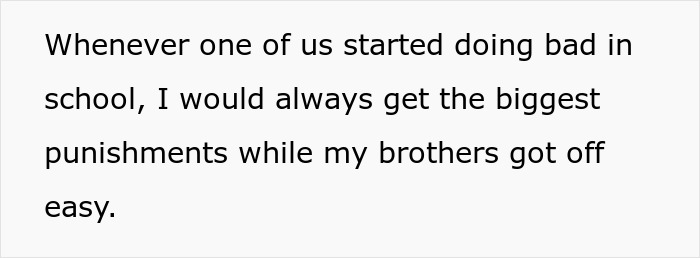
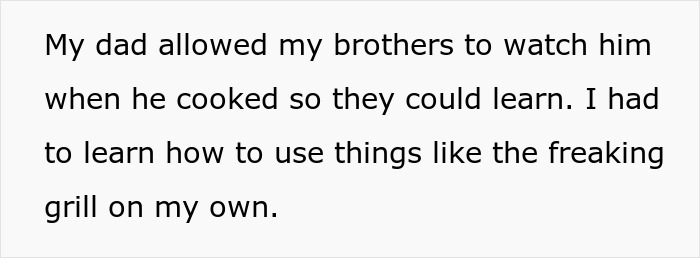
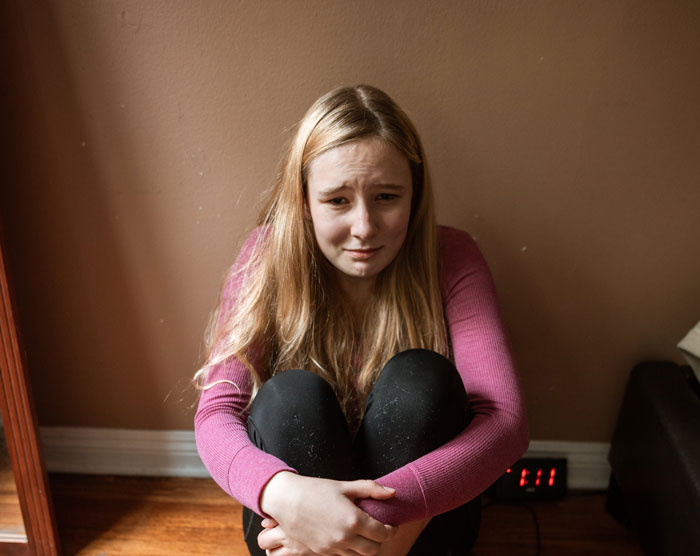
Image credits: RDNE Stock project (not the actual photo)
She wasn’t allowed to touch her own money, her brothers were instructed to not communicate with her and then her stuff started going missing
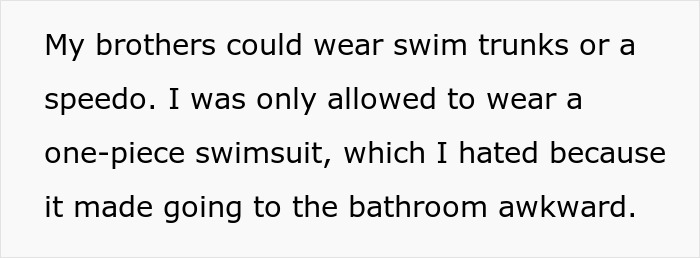
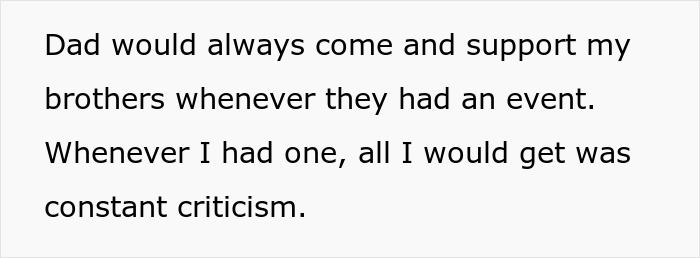
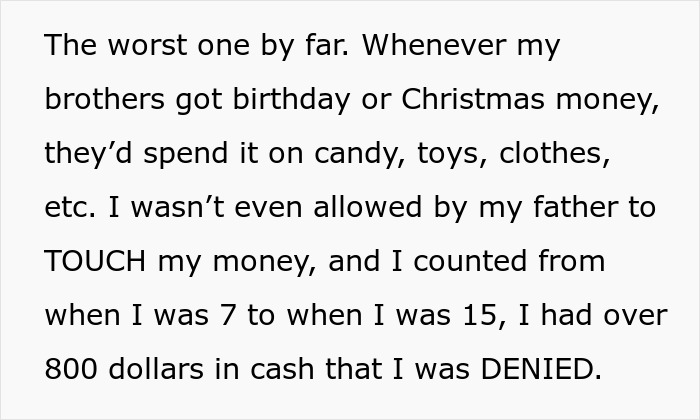
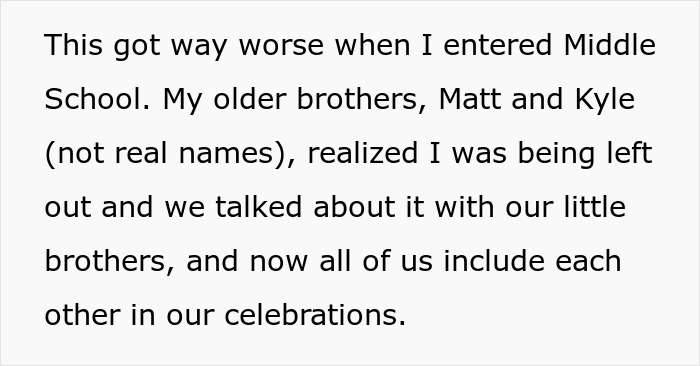
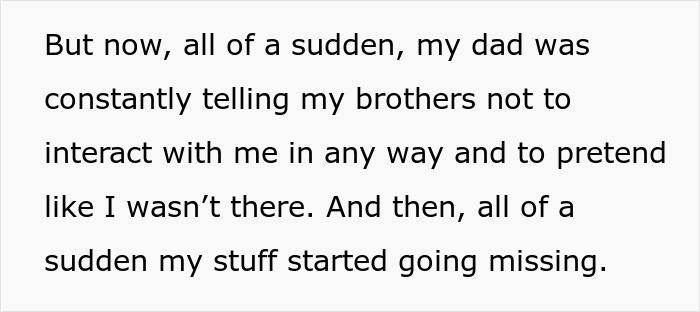
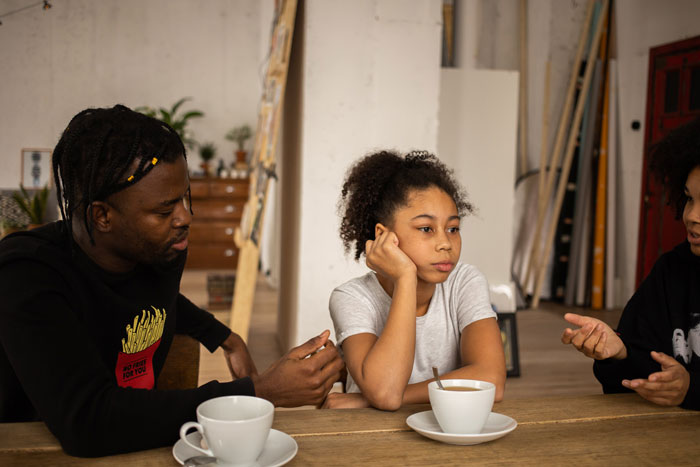
Image credits: Monstera Production (not the actual photo)
However, when she confronted her dad about it, he told her that she was growing up to be a housewife and didn’t need all these things
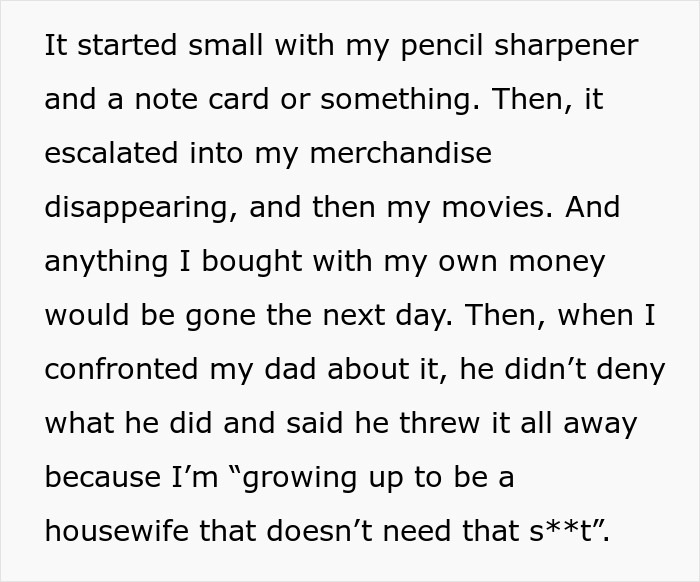
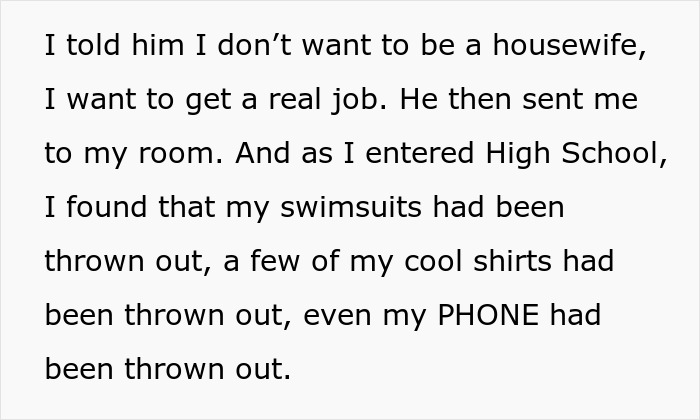
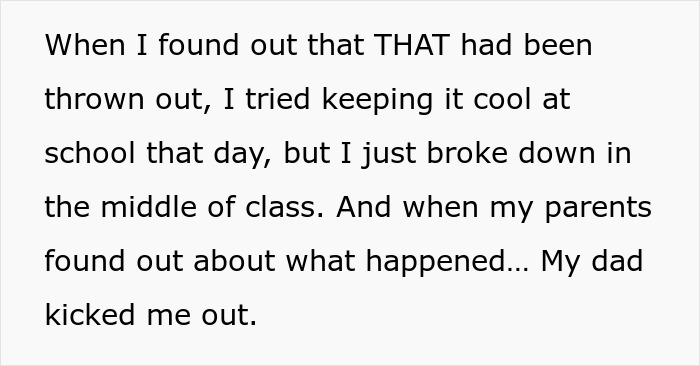
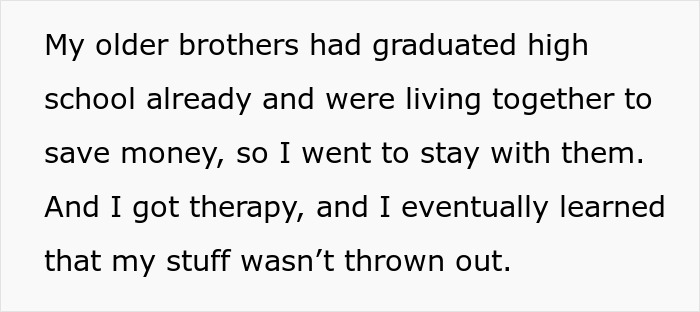
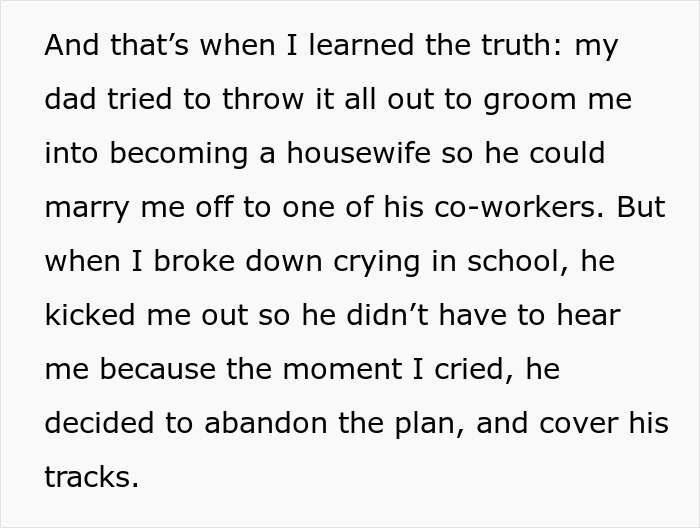
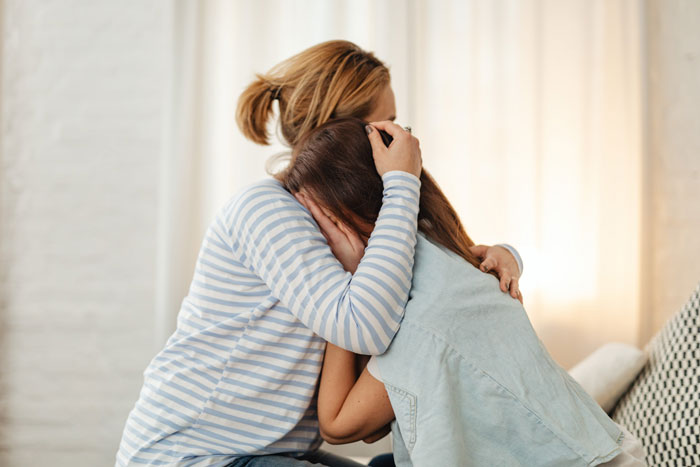
Image credits: Karolina Grabowska (not the actual photo)
One day, she broke down in the middle of class and when her parents found out, her dad kicked her out
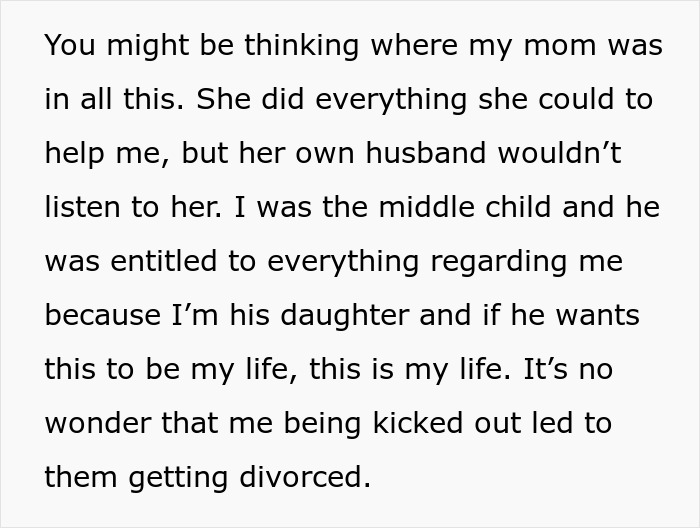
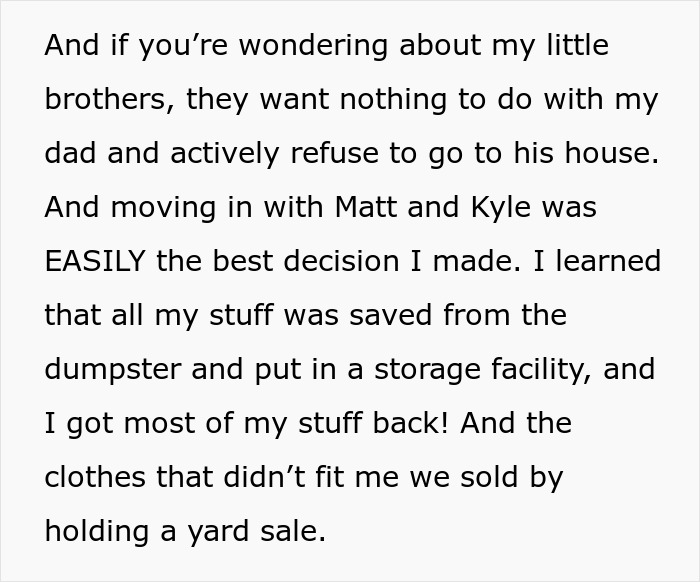
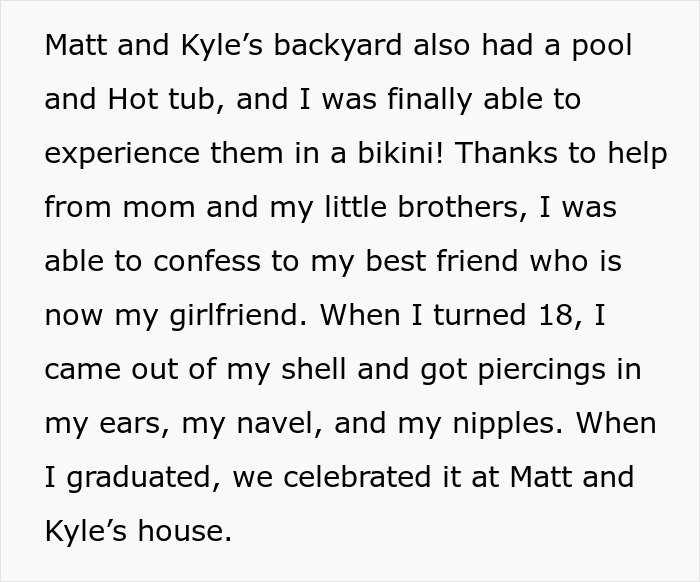

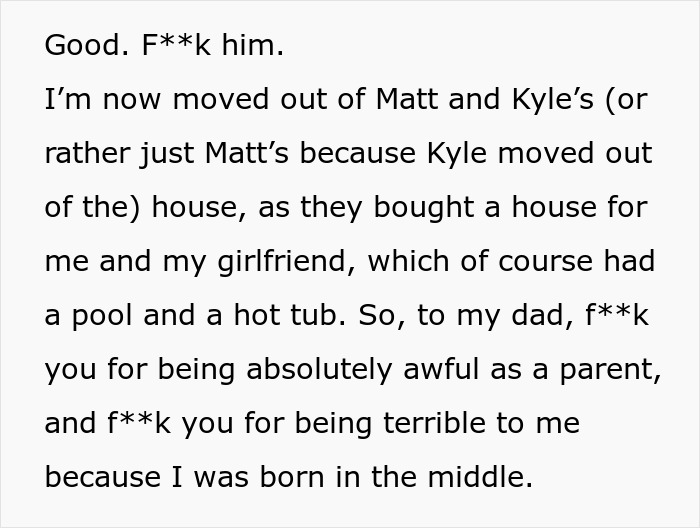
Image credits: LetsHelpHellk
She moved in with her brothers, got into therapy and when she turned 18 Y.O., she finally started living, graduated and confessed to her best friend, who’s now her girlfriend
A few days ago, one Reddit user shared her story online, opening up about her entitled dad who wanted to groom her into becoming a housewife so he could marry her off to one of his co-workers. The post caught quite a lot of community members’ attention and received over 650 upvotes and 31 comments.
The original poster (OP) started her story by sharing that she was born in the middle and the only female among her siblings, so all her childhood, she was singled out by her father, from not being able to choose activities or support, to not even being allowed to touch her money. In middle school, even her brothers were instructed to not communicate with her.
Then, all of a sudden, OP’s things started going missing and when she confronted her dad, it turned out that he was raising her to be a housewife and she didn’t need all these things. Well, after even her phone had been thrown out, she broke down in the middle of class and her dad just kicked her out. Luckily, her older brothers were living together, so she went to stay with them and began therapy.
After this, she shared that her little brothers refused to visit their dad’s home as well and their parents ended up divorcing. OP noted that she was able to confess to her best friend, who is now her girlfriend, and graduated. And as for dad – OP noted that he got arrested for a DUI car crash and being high.
Community members were happy for the author for finally ‘breaking free’ and condemned the father. “Get away from him and stay away. You’ll have a family soon enough of friends and they’ll care for you,” one user shared. “Congrats on everything you have gained, accomplished, and got back. Your dad was such a piece of crap that he deserves everything bad that happens to him,” another added.
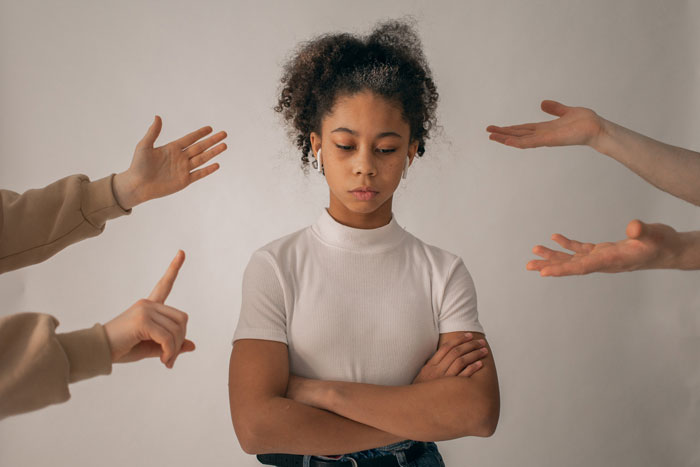
Image credits: Monstera Production (not the actual photo)
So while for most of us, it sounds quite impossible for parents to have a favorite kid or prefer one child over another, it turns out that according to Institute For Family Studies, 40% of Americans who grew up with siblings report that their parents had a favorite child. Furthermore, 51% of Americans who say they were raised by divorced parents think their parents had a favorite child.
In fact, comparing the story with research, it makes sense. Men are far more likely than women to say they are the favored member of the family. According to 33% of males who think their parents choose favorites, they were the family favorite. Less than 23% of women think they were their parents’ favorite.
Also, only 17% of women who were middle children say they were a favorite child, which is the lowest percentage of any group.
Furthermore, according to Mallory Williams, LCSW, the most significant long-term risks include anxiety, sadness, and erratic or even traumatic reactions in interpersonal relationships, as well as performance anxiety in both favored and non-favored children. She also talks about the child’s sentiments of rejection as an adult and problems with self-esteem.
But what do you guys think about this whole situation? Share your thoughts below!
Redditors congratulated the woman for accomplishing everything and applauded her brothers
